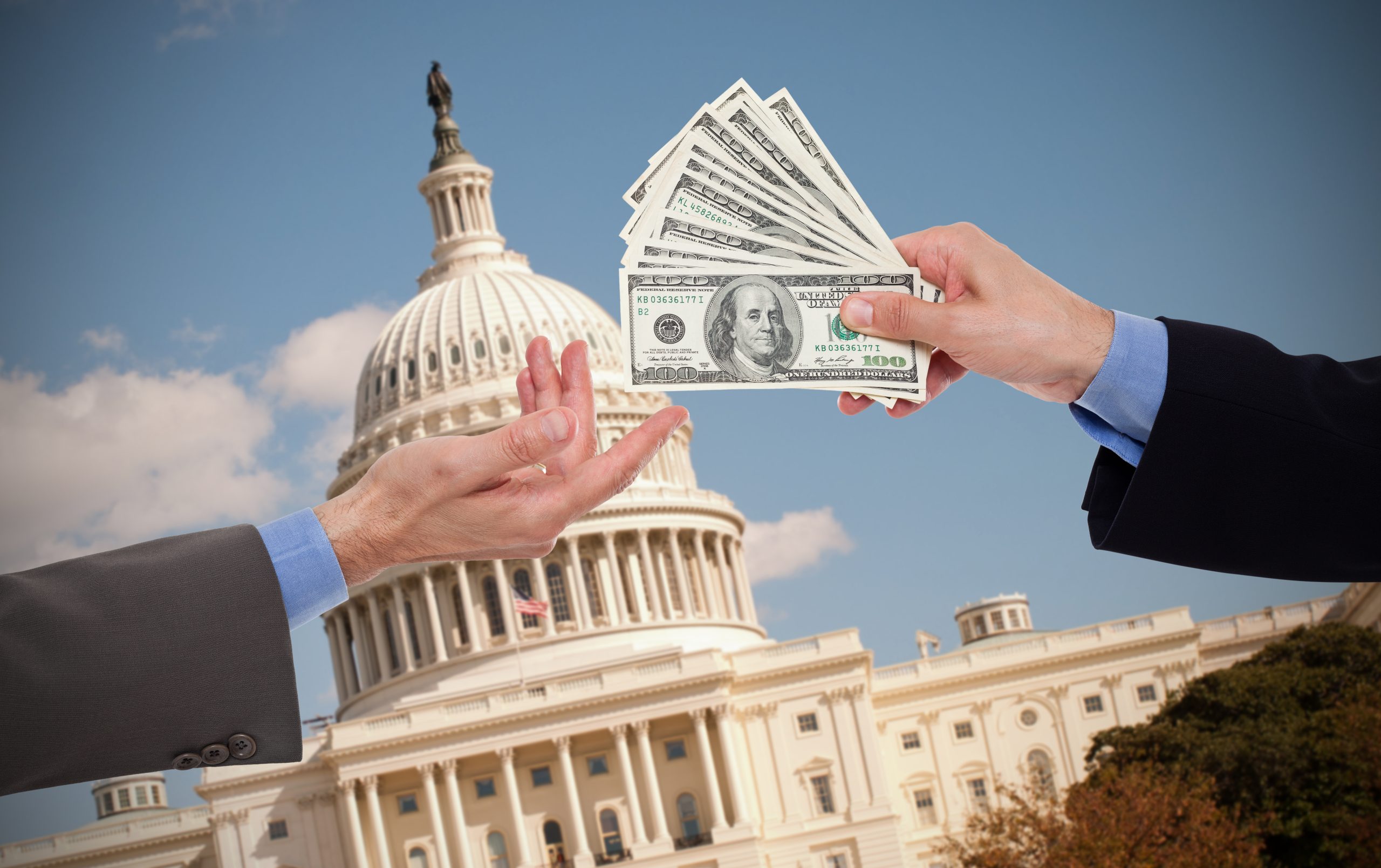Corporate Influence Over Legislation/Regulation on Key Themes Affecting the Public Interest, Prompts Investors to File Numerous Proposals Scrutinizing Corporate Political Activity

CONTACT:
Susana McDermott
Director of Communications
Interfaith Center on Corporate Responsibility (ICCR)
201-417-9060 (mobile)
smcdermott@iccr.org
NEW YORK, NY, TUESDAY, FEBRUARY 27 2024 - Members of the Interfaith Center on Corporate Responsibility and allied investors announced a slate of 63 shareholder proposals for 2024 proxies at a diverse set of companies across multiple sectors calling for increased disclosures and strengthened oversight of corporate political activities. You can read more about these proposals in ICCR’s Proxy Resolutions and Voting Guide.
The vast majority of companies utilize various forms of public policy advocacy to impact legislative and regulatory decisions mainly through lobbying and campaign contributions. This advocacy occurs at all levels of government, from the municipal and state levels to federal legislative and regulatory processes. Statistica reported total corporate lobbying expenditures exceeding $4 billion annually in 2022 with the pharmaceutical, tech, financial services, and oil & gas sectors among the top spenders either through direct lobbying or indirectly through third-party organizations. Some of the issues that attract significant lobbying dollars include efforts by pharmaceutical companies to protect drug patents resulting in higher drug prices; efforts on behalf of fossil fuel companies and heavy polluters to limit environmental regulation at the state and federal levels; and spending by firearms manufacturers to prevent sensible gun control legislation, among many others.
“ICCR members and other responsible investors have long petitioned companies to expand disclosures and adopt standards since guardrails for corporate political activities are so clearly needed,” said Tim Smith, ICCR’s Senior Policy Advisor. “Some corporations have an outsized influence over public policy issues and they need to evaluate if this advocacy is truly in the public interest.”
Through their memberships in trade associations like the U.S. Chamber of Commerce and the National Association of Manufacturers (NAM), and their donations to Super PACs, 527 committees, “social welfare” organizations, and model legislation groups like the American Legislative Exchange Council (ALEC), corporations have an outsized voice on many issues affecting the public interest. Without robust oversight, investors say these political activities run the risk of inviting corruption, damaging democratic structures, and - when these activities conflict with a company’s stated mission and values - causing reputational damage to participating companies.
“Companies exercise considerable power in their direct and indirect lobbying through trade associations and this year, the issues of political spending and lobbying will once again be a high priority for investors,” said Caroline Boden of Mercy Investment Services. “Investors are urging full transparency in those activities as well as careful evaluation of whether they align with a company’s stated values and priorities as any misalignment may create reputational risk and unwanted controversy. We are pleased to see a number of companies responding positively to these appeals resulting in withdrawal agreements and improved corporate responsibility on this issue.”
Investors say the risks of corporate political activity are heightened in the run-up to a highly consequential national election.
“In 2024, it is essential that companies act as positive forces to protect and preserve democracy,” said Matthew Illian of United Church Funds. “Companies can encourage politicians to support fair and free elections as well as carefully scrutinize whether their corporate and PAC funds are channeled to politicians who advance democratic freedoms. Many companies have added specific restrictions on contributions to trade associations stipulating their dues cannot be used for election purposes.”
Last August, ICCR members sent a letter to CEO members of the Business Roundtable urging them to assess whether their policy advocacy reinforces or undermines democratic principles including free and fair elections and healthy civic engagement.
“Given the stakes of this year’s elections, companies need to pay even greater attention to the impact and risks of their political spending,” said Bruce Freed, President of the Center for Political Accountability (CPA). "CPA has several resources to help guide companies and their investors including Corporate Underwriters and the Democracy Gap which examines how company political spending has reshaped state politics and created serious risks for companies, shareholders, and our democracy, and our Guide to Corporate Political Spending and Guide to Becoming a Model Code Company which give management and directors the framework for approaching, governing and assessing political spending to safeguard companies.”
Since the proposals were filed, there have been constructive discussions with companies and several agreements reached between shareholders and companies allowing the proponents to withdraw the proposals. Among these were negotiated agreements with Starbucks and Boeing, which agreed to provide detailed additions to their lobbying reports. In addition, a resolution at Stride nearly reached a majority vote with 49.5% shareholder support.
ICCR members urge companies to implement the Erb Principles for Corporate Political Responsibility and the CPA-Zicklin Model Code of Conduct for Corporate Political Spending which provide a framework for companies to approach and govern their election-related spending to ensure it is consistent with corporate values and the goal of supporting democratic institutions and the public interest.
About the Interfaith Center on Corporate Responsibility (ICCR)
The Interfaith Center on Corporate Responsibility (ICCR) is a broad coalition of more than 300 institutional investors collectively representing over $4 trillion in invested capital. ICCR members, a cross-section of faith-based investors, asset managers, pension funds, foundations, and other long-term institutional investors, have over 50 years of experience engaging with companies on environmental, social, and governance (“ESG”) issues that are critical to long-term value creation. ICCR members engage hundreds of corporations annually in an effort to foster greater corporate accountability. Visit our website www.iccr.org and follow us on Twitter/X (@iccronline), LinkedIn, and Facebook.







